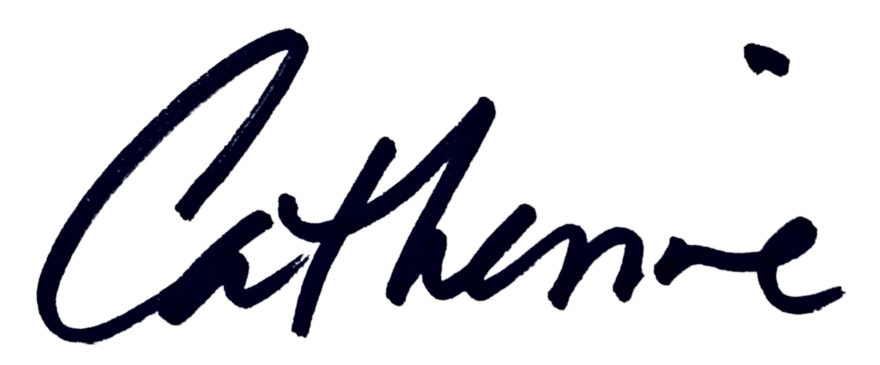At Revelios, we specialize in workplace mental health and psychological safety. What if you work for yourself, by yourself?
In this article, I delve into a topic close to my heart: mental health in freelancing and self-employment. As someone who has worked in both the corporate and freelance worlds, I understand the variable realities of maintaining well-being in different work ecosystems. Being your own boss can be exhilarating, empowering, and often downright exhausting. Amidst the 24/7 constant thought bubbles, it’s crucial to prioritize our mental well-being.
Please note: We are not talking about how to manage mental illness here but rather about nurturing overall mental health and well-being. These tips apply to those with or without a diagnosed mental illness or disorder. They can also help you recognize when additional professional support is required.
How can we maintain our well-being while chasing our entrepreneurial dreams?
Learn the ABCs of Mental Health:
A – Awareness, Agency, and Accountability:
Awarenessis the first step towards change. Set aside regular time for self-reflection to assess your current well-being, identify improvement areas, and celebrate successes. Get in touch with your thoughts, feelings, and triggers. Notice when stress starts creeping in and address it head-on. Self-reflection can help you gain insights into your habits, behaviours, and coping mechanisms, empowering you to make informed decisions about self-care. Use journaling, meditation, or other mindfulness tools that work for you. Learning is also part of awareness. Seek new information and skill-building.
Agency is your power to make choices. Take ownership of your schedule, projects, and decisions. Delegate tasks when necessary, and don’t hesitate to seek support from peers or professionals. Define clear, achievable goals for your freelance career and personal life. Break down larger goals into smaller, actionable steps, and regularly assess your progress to stay on track. Notice what you CAN control and what you CANNOT control. Rarely are we up against a purely binary choice. And, sometimes, doing nothing is a decisive action of choice. Take regular breaks away from your screens. You deserve it.
Accountability holds it all together. Hold yourself accountable for maintaining healthy habits and boundaries. Surround yourself with a supportive network that can help keep you in check. And remember, it’s okay to ask for help – vulnerability is a strength, not a weakness. It takes courage (addressed later) to acknowledge needs and gaps. “To know and not do is not yet to know” (Anon). How can you turn knowledge into action?
B – Balance, Belonging, and Boundaries:
Achieving life balance is essential for sustaining productivity and well-being. Setting boundaries and allocating time for work and personal activities can prevent burnout and maintain mental health. Finding an equilibrium between professional responsibilities and personal life allows for greater fulfillment and longevity in one’s career journey. Also, how are you meeting your basic human needs of nutrition, rest, movement, connection, and being outside? And, in our world of screens, be thoughtful of finding restorative activities off-screen. This alone can help mitigate burnout.
Humans are wired for connection. Building a sense of belonging within a supportive community is crucial for nurturing emotional well-being. Whether through friendships, professional networks, or communities of shared interests, having a support system can provide validation, encouragement, and perspective during challenging times. Cultivating meaningful connections fosters a sense of belonging, reduces feelings of isolation, and promotes resilience through tough times. Also, remember that we all need alone time and being with others. Where might you be out of balance?
Boundaries – the cornerstone of self-care. When freelancing, it’s easy to blur the lines between work and personal life. But remember, you’re not available 24/7. Set clear boundaries with yourself first. Designate specific work hours and stick to them religiously. If possible, create a physical boundary (even just a corner, screen, or curtain). This not only prevents burnout but also fosters a healthier life balance.
Set boundaries with clients, vendors, and collaborators. Be upfront about your availability, communication preferences, and project scope. This can be scary when you don’t have a regular paycheck. Don’t be afraid to say no if something doesn’t align with your values or workload. You can decide on a case-by-case basis. Remember, agency.
C – Curiosity, Courage, and Collaboration:
Embracing curiosity involves adopting a mindset of exploration and discovery when facing challenges. By maintaining an open mind and a genuine interest in learning, you can uncover new perspectives, solutions, and opportunities for growth. Curiosity fuels innovation, fosters creativity, and empowers you to navigate uncertainty with confidence and adaptability.
Cultivating courage entails embracing vulnerability and stepping outside your comfort zone to advocate for your needs. It involves facing fears, taking risks, and speaking up about personal boundaries, desires, and aspirations. By practicing courage, you can overcome obstacles, pursue meaningful goals, and foster authentic connections with others. Courage empowers you to assert yourself, embrace authenticity, and live aligned with your values and aspirations.
Collaboration involves fostering meaningful connections and leveraging collective strengths to achieve shared goals. It is about building trust, communication, and mutual respect among team members or peers to achieve common objectives. By seeking support from others and embracing diverse perspectives, you can tap into a wealth of knowledge, resources, and expertise to overcome challenges and drive success. Collaboration encourages cooperation, innovation, and synergy, ultimately leading to more impactful outcomes and sustainable growth.
Freelancing and self-employment can be incredibly rewarding, but only if we prioritize our physical, mental and social health. Learning about and applying the principles of the ABCs of mental health is a good place to start. Here’s to thriving, not just surviving, in the world of freelancing. Your well-being is non-negotiable.
Quick Recap: ABCs of Mental Health
A – Awareness, Agency, and Accountability:
- Stay attuned to thoughts, feelings, and triggers.
- Take ownership of choices and prioritize self-care.
- Hold yourself responsible for maintaining healthy habits.
B – Balance, Belonging, and Boundaries:
- Prioritize life balance to prevent burnout.
- Cultivate a supportive network for emotional well-being. We’re wired for connection.
- Set clear limits with yourself, clients, and collaborators.
C – Curiosity, Courage, and Collaboration:
- Approach challenges with an open mind and a willingness to learn.
- Embrace vulnerability and advocate for your needs. Say ‘yes’ to opportunities!
- You don’t need to go it alone! Reach out, cultivate meaningful connections, and seek support when needed.
To learn more about building your own mental health toolkit, contact me.



